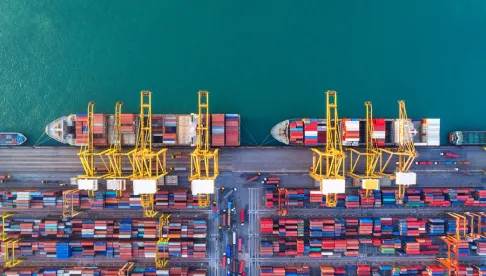Over the last three years, the current administration has imposed the largest export controls penalty, the second-largest economic sanctions penalty, and four of the ten largest anti-bribery penalties of all time, signaling that compliance with U.S. international regulations has never been more important.
Automotive companies that source, operate, or sell abroad face especially significant regulatory risk. Doing business in the Middle East, Africa, Latin America, and Asia present issues under the Foreign Corrupt Practices Act (FCPA) (frequent bribery requests), economic sanctions from the Office of Foreign Assets Control (OFAC) (limitations on dealings with Iran, Syria, Russia, Venezuela, and other sanctioned countries), and export controls (restrictions on shipments of U.S.- origin goods to embargoed or restricted countries or persons). Iran presents its own unique concerns, as the U.S. government maintains sectoral sanctions that specifically restrict the ability of U.S. companies to deal with the Iranian automotive sector.
While automotive companies have traditionally focused on sale-side issues to evaluate international regulatory risk – assuming that these areas left them most vulnerable – the U.S. government has recently sent targeted messages detailing an expectation that companies subject their entire supply chain to extensive due diligence, based on state-of-the-art compliance measures. These messages include the issuance of an unusual three-agency briefing by the Departments of State, Treasury, and Homeland Security on the need for supply chain due diligence, as well as a special advisory from the Department of Homeland Security on supply chain due diligence and compliance best practices.
A well-run compliance program, however, is not something that comes about by accident – particularly in the international realm. Natural changes in the organization’s footprint, evolving methods of operation, changes in the law (such as the new sanctions on Iran), and shifts in the enforcement aims of government authorities (such as the new focus on the supply chain) all conspire to make even the best compliance program obsolete in a surprisingly short time. Thus, to stay one step ahead of the U.S. government’s increasingly aggressive enforcement of export laws and international conduct, any automotive company that has not yet conducted a risk-assessment or recently reviewed the effectiveness of its international compliance efforts should consider doing so – today.
For more insights on the changing nature of international regulatory risk, compliance, and other key issues facing the industry, check out Foley’s white paper on the “Top Legal Issues Facing the Automotive Industry in 2020.” In addition, the authors of this client alert have a white paper on compliance best practices for the automotive sector, which is available on request.





 />i
/>i

